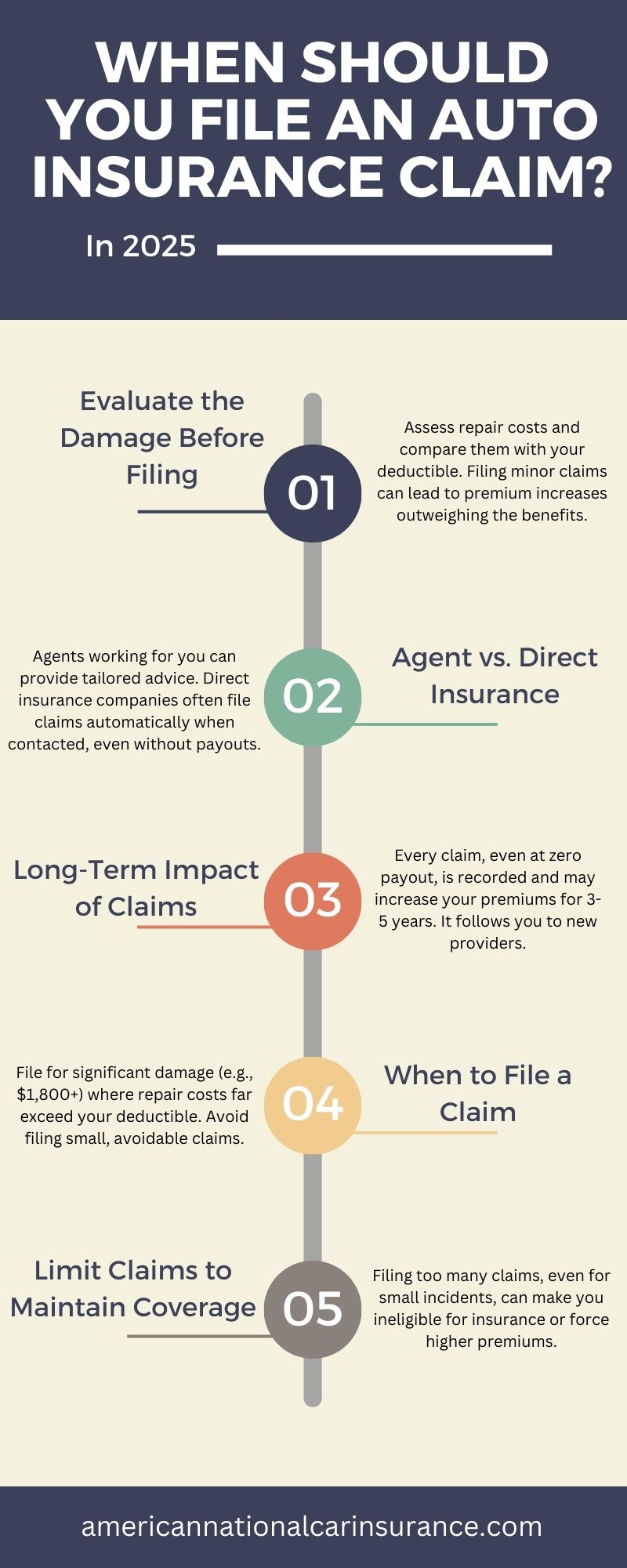
Filing an insurance claim is one of those tasks that no one enjoys, but it’s something we all may face at some point. As Melanie Lopez from Boston, I’ve learned a lot about the process through personal experiences and professional insights.
Today, I’m sharing everything you need to know about filing an insurance claim. Let’s make it less intimidating and more manageable for you.
File an Insurance Claim – Understand When and Why
When you’re in an accident or encounter damage to your car, the first question is whether you should file an insurance claim. Here’s what I’ve learned—it depends on your situation.
For instance, if the repair costs are less than or close to your deductible, it might be better to pay out of pocket. Filing a claim could increase your premium, and the impact might last for years.

Key Considerations for Filing a Claim
| Consideration | Details |
|---|---|
| Cost of Damage | Compare repair costs with your deductible. |
| Fault | Determine whether you or another party is at fault. |
| Policy Terms | Review your policy’s coverage and exclusions. |
| Long-Term Impact | Understand how filing may affect your insurance rates. |
| Emergency Needs | If immediate repairs are essential, filing might be unavoidable. |
By evaluating these factors, you can decide whether filing a claim is the right move for you.
File an Insurance Claim – Step-by-Step Process
Filing an insurance claim involves several steps. Here’s a clear guide to help you navigate the process:
Steps to File a Claim
| Step | Action |
| 1. Assess the Situation | Ensure everyone’s safety and document the damage. |
| 2. Notify Your Insurer | Inform your insurance company as soon as possible. |
| 3. Gather Evidence | Take photos, collect witness statements, and keep all relevant documents. |
| 4. Submit Your Claim | Complete the required forms and provide all evidence. |
| 5. Work With Adjusters | Cooperate with the insurance adjuster during their assessment. |
These steps make the process smoother and increase the likelihood of a favorable outcome.
File an Insurance Claim – Choosing Between Direct Models and Agents
One critical decision is whether to work directly with an insurance company or through an agent. Each option has its pros and cons.
Direct Models vs. Agents
| Aspect | Direct Models | Agents |
| Cost | Often cheaper due to fewer intermediaries. | Slightly higher due to agent fees. |
| Personal Advice | Limited guidance—you manage most decisions. | Offers tailored advice based on your situation. |
| Claim Filing | Claims filed automatically upon contact. | Can guide you before deciding to file a claim. |
| Relationship | Transactional and impersonal. | Personal and supportive relationship. |
If personalized advice and support matter to you, an agent might be the better choice.
File an Insurance Claim – Real-Life Scenarios
To illustrate the decision-making process, let’s look at real-life examples:
Example 1: Minimal Damage
You accidentally scrape a pole while parking. The repair costs $300, and your deductible is $500. In this case, paying out of pocket is wiser to avoid a rate increase.
Example 2: Significant Damage
You’re involved in a collision that causes $5,000 worth of damage. With a $1,000 deductible, filing a claim ensures the bulk of the cost is covered.
These examples highlight the importance of evaluating the situation before contacting your insurer.
File an Insurance Claim – FAQs
What happens if I file a claim for minor damage?
Filing a claim for minor damage may not be worth it. Your rates could increase, potentially costing you more in the long run.
Can I cancel a claim after filing it?
Yes, but only before the insurer processes it. Once processed, the claim stays on your record even if no payout is made.
Will filing a claim always increase my premium?
Not necessarily. It depends on factors like fault, claim amount, and your insurer’s policies.
What if I’m not at fault?
If another party is at fault, their insurance should cover your damages. Filing a claim under your policy may not impact your rates.
Suggestions for Filing Insurance Claims
- Always document the scene with photos and notes.
- Keep track of all receipts and repair estimates.
- Consult your agent before deciding to file a claim.
- Stay informed about your policy’s terms and conditions.
- Act promptly to avoid delays in claim processing.
Conclusion
Filing an insurance claim can be straightforward if you understand the process and weigh your options carefully. By following the advice shared here, you’ll make informed decisions that protect your financial interests and maintain your peace of mind.
Don’t forget to share this article with friends and subscribe to our website notifications for more helpful tips and updates!

Melanie Lopez is a passionate content specialist at American National Car Insurance, dedicated to simplifying car insurance for every American driver. With years of industry expertise, she crafts informative and engaging articles to help users make confident insurance decisions.